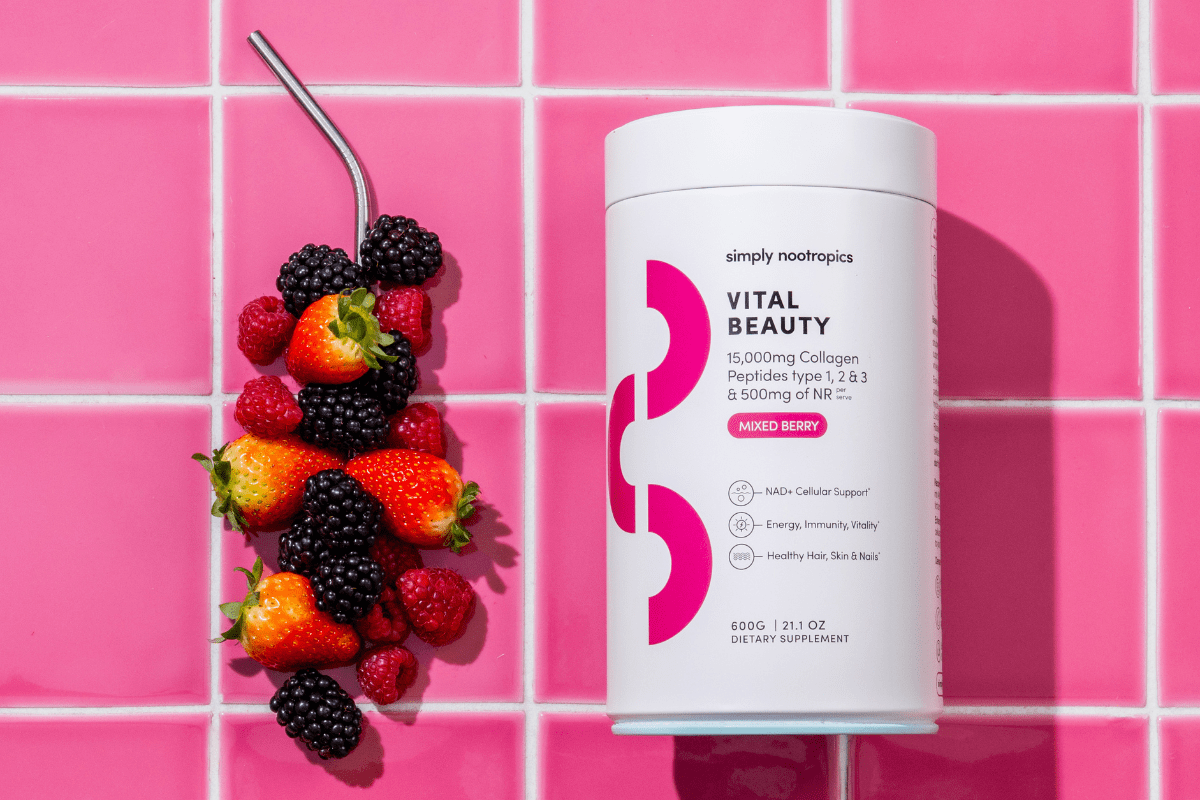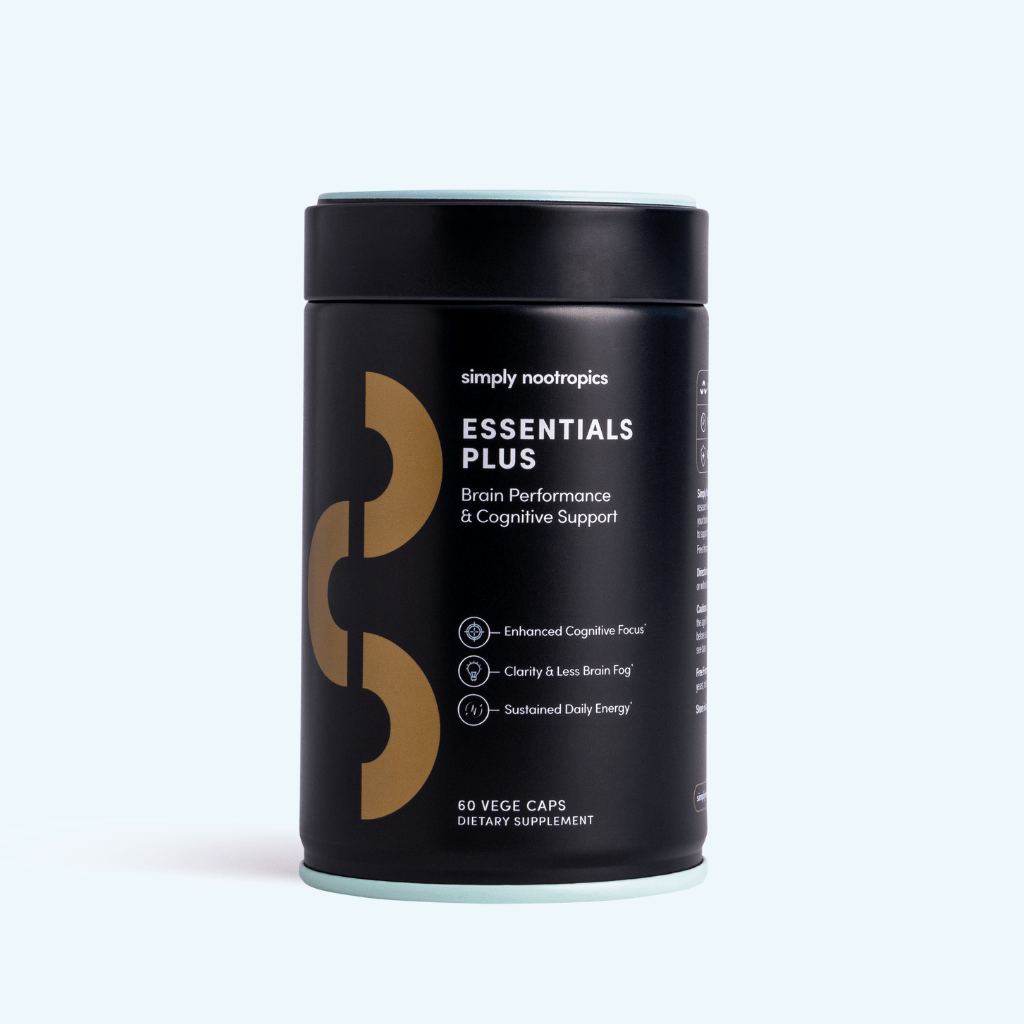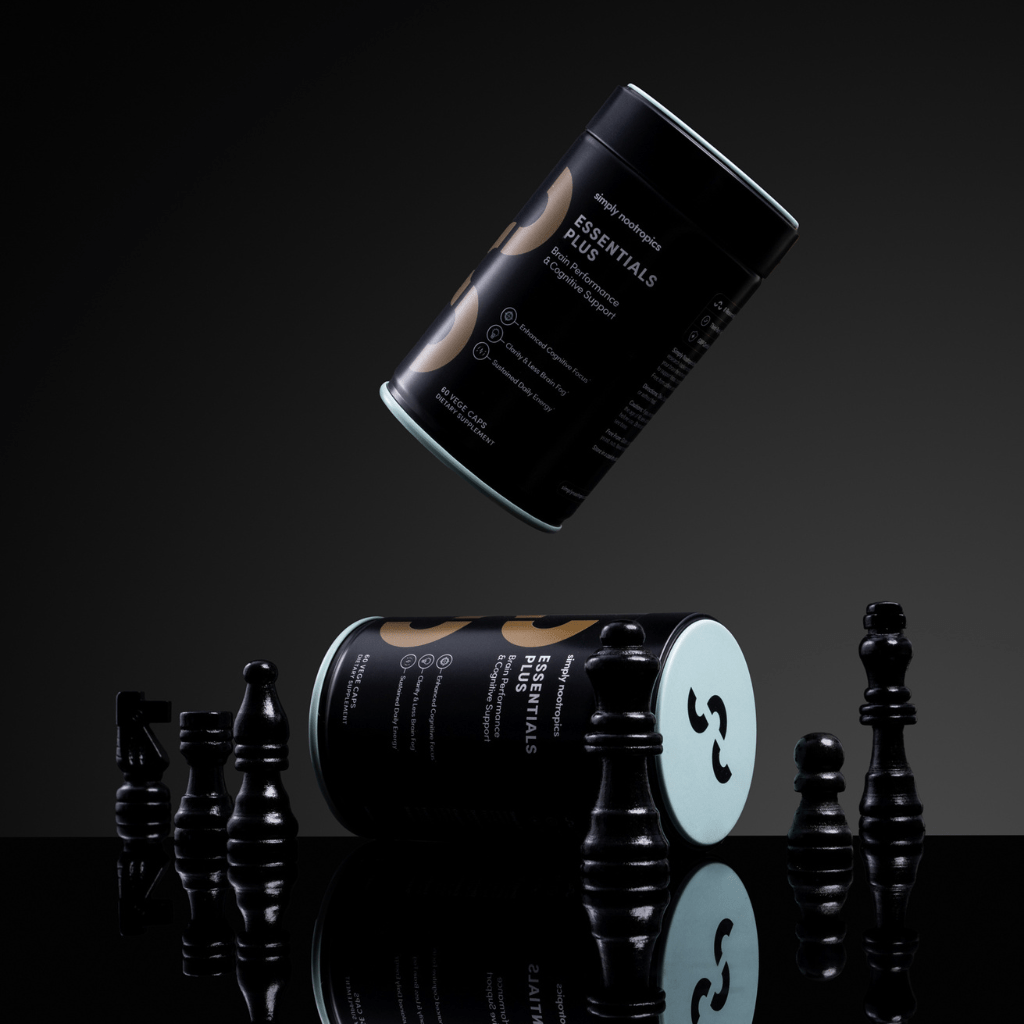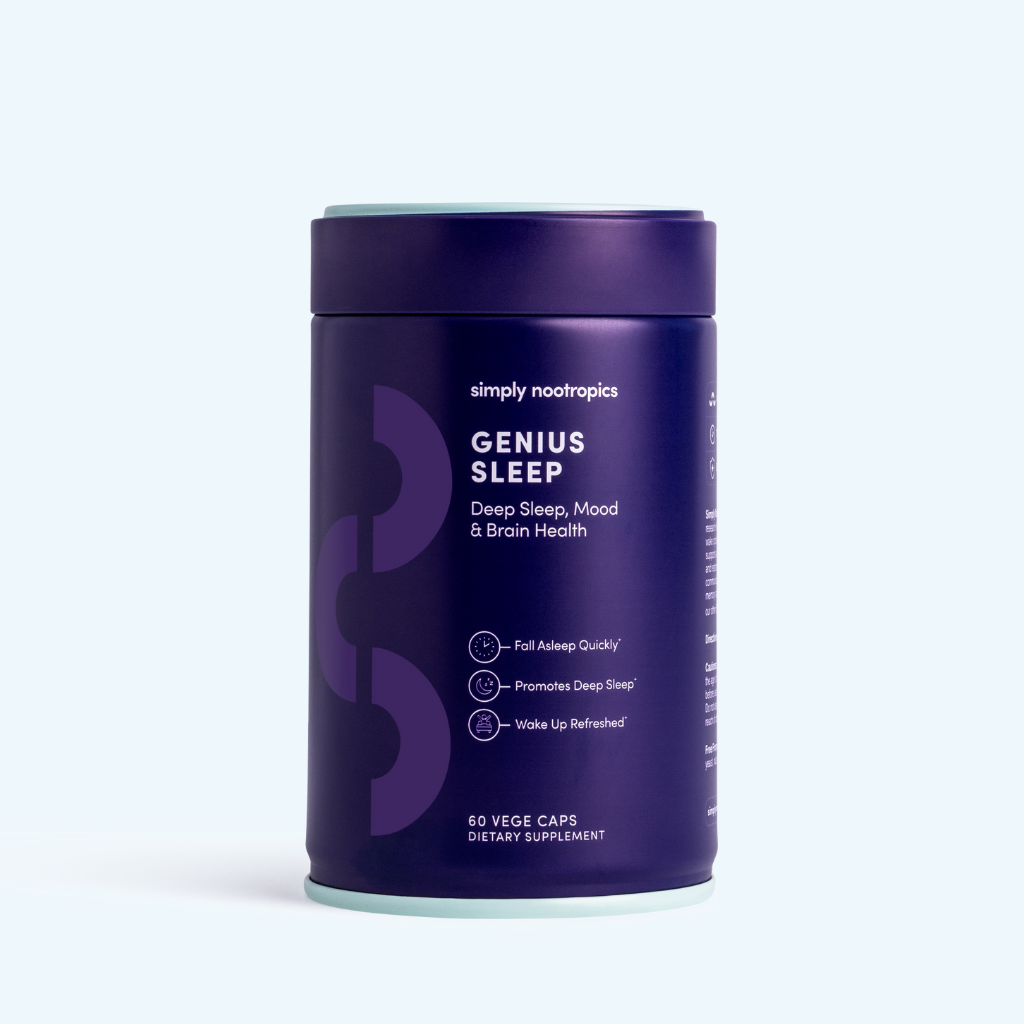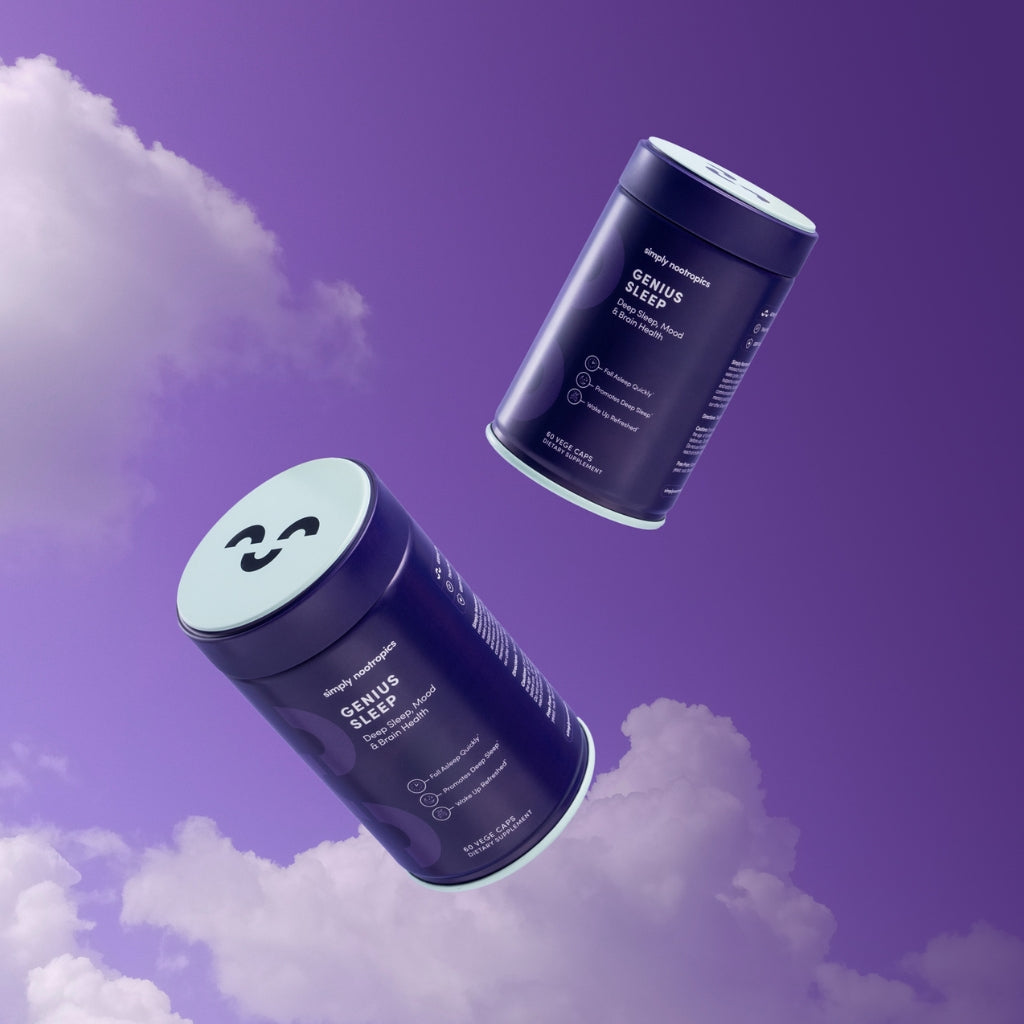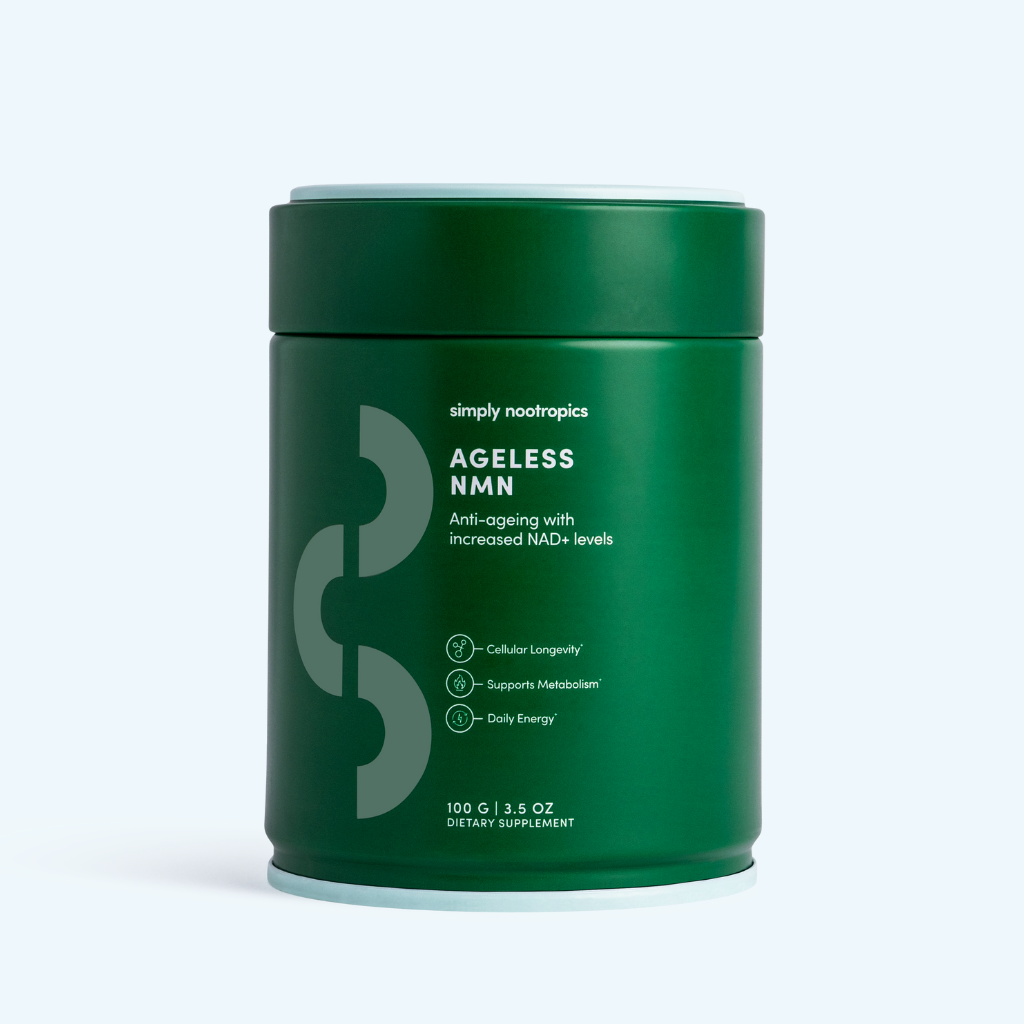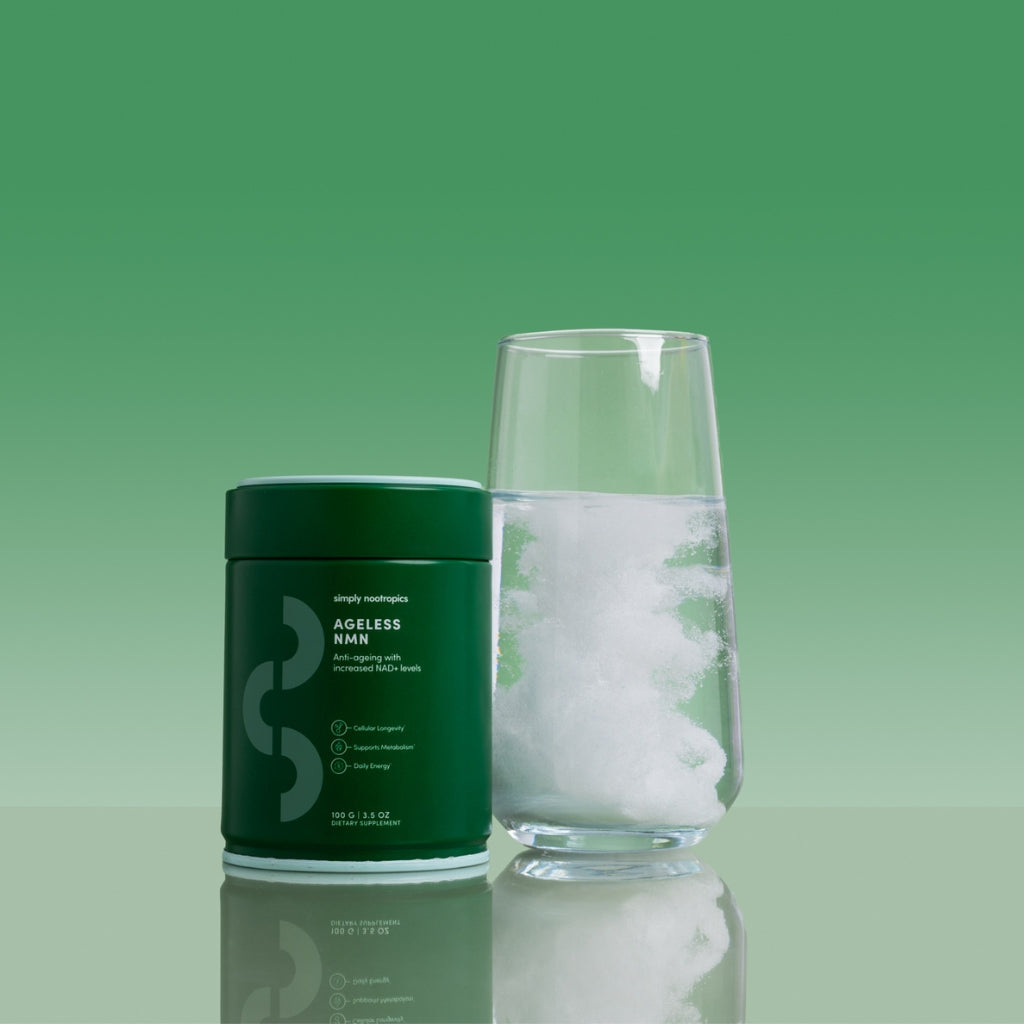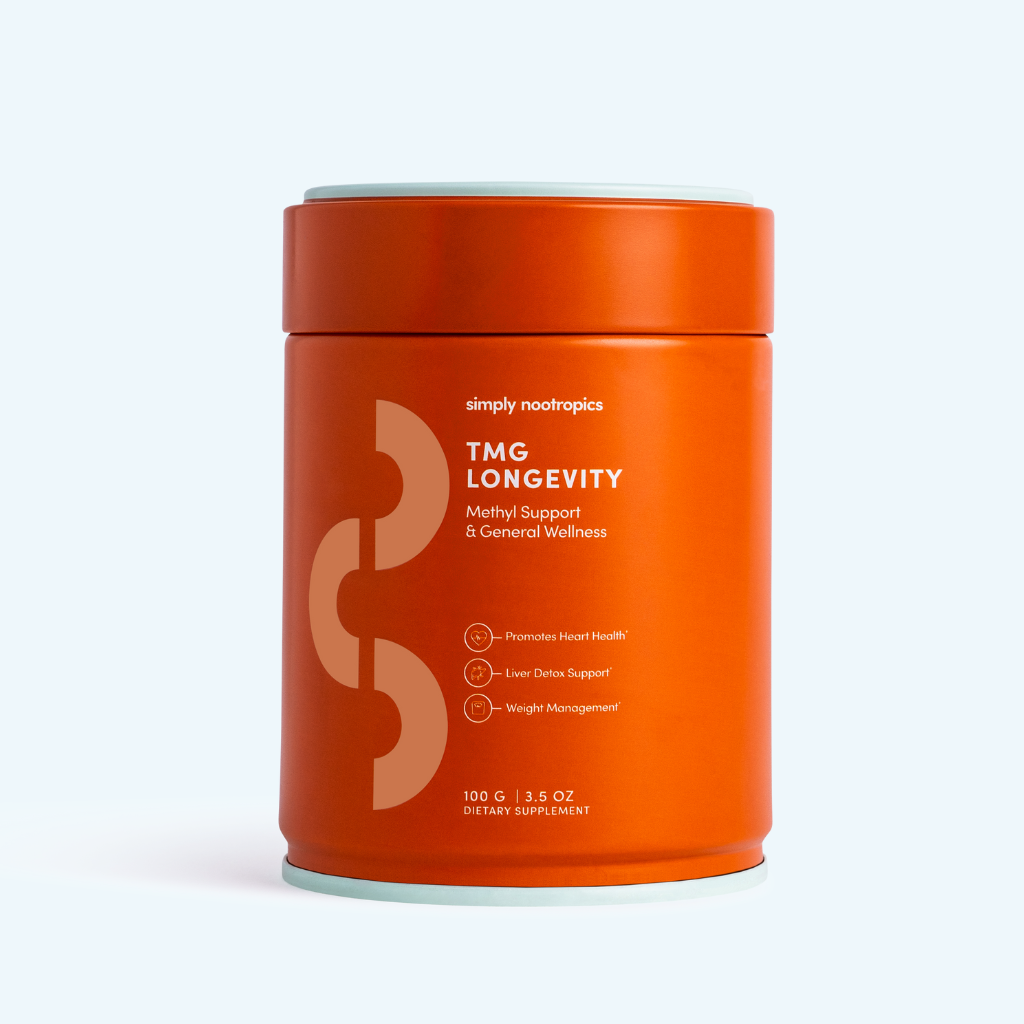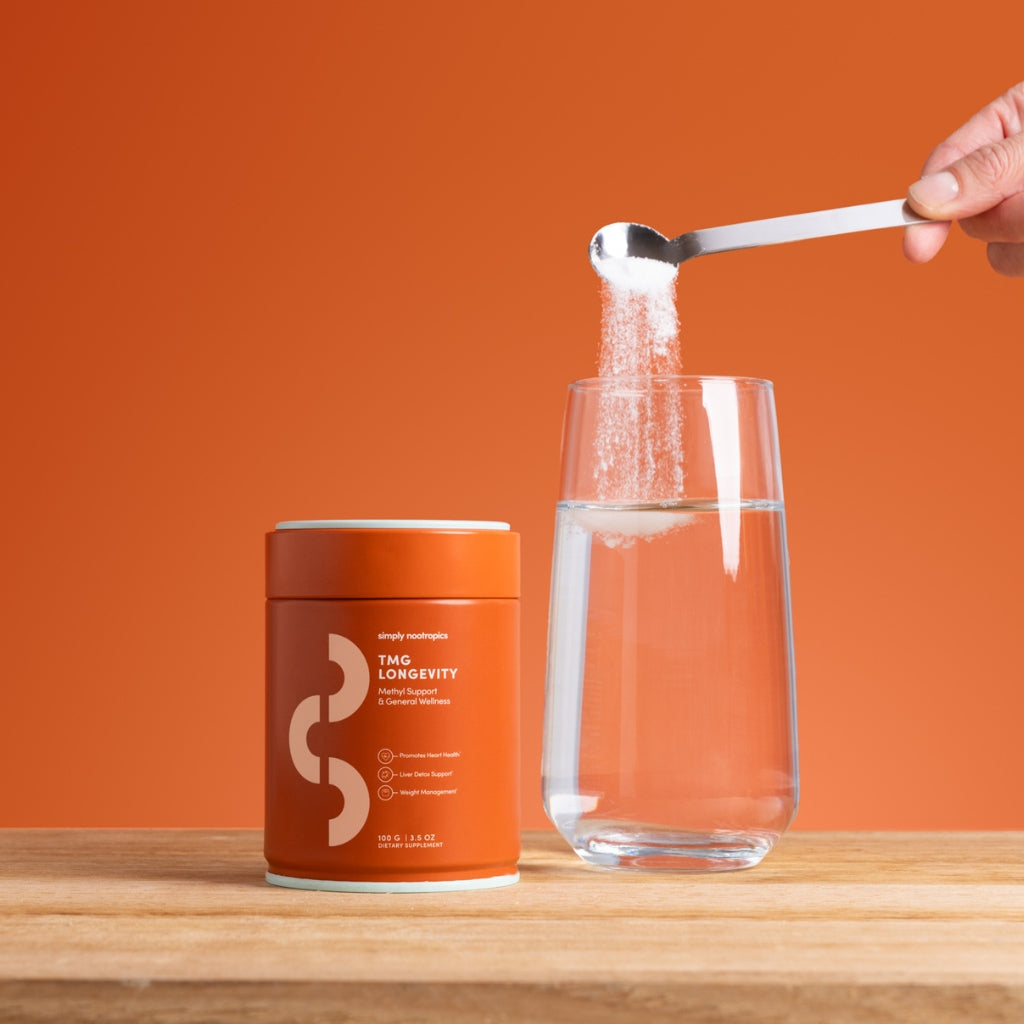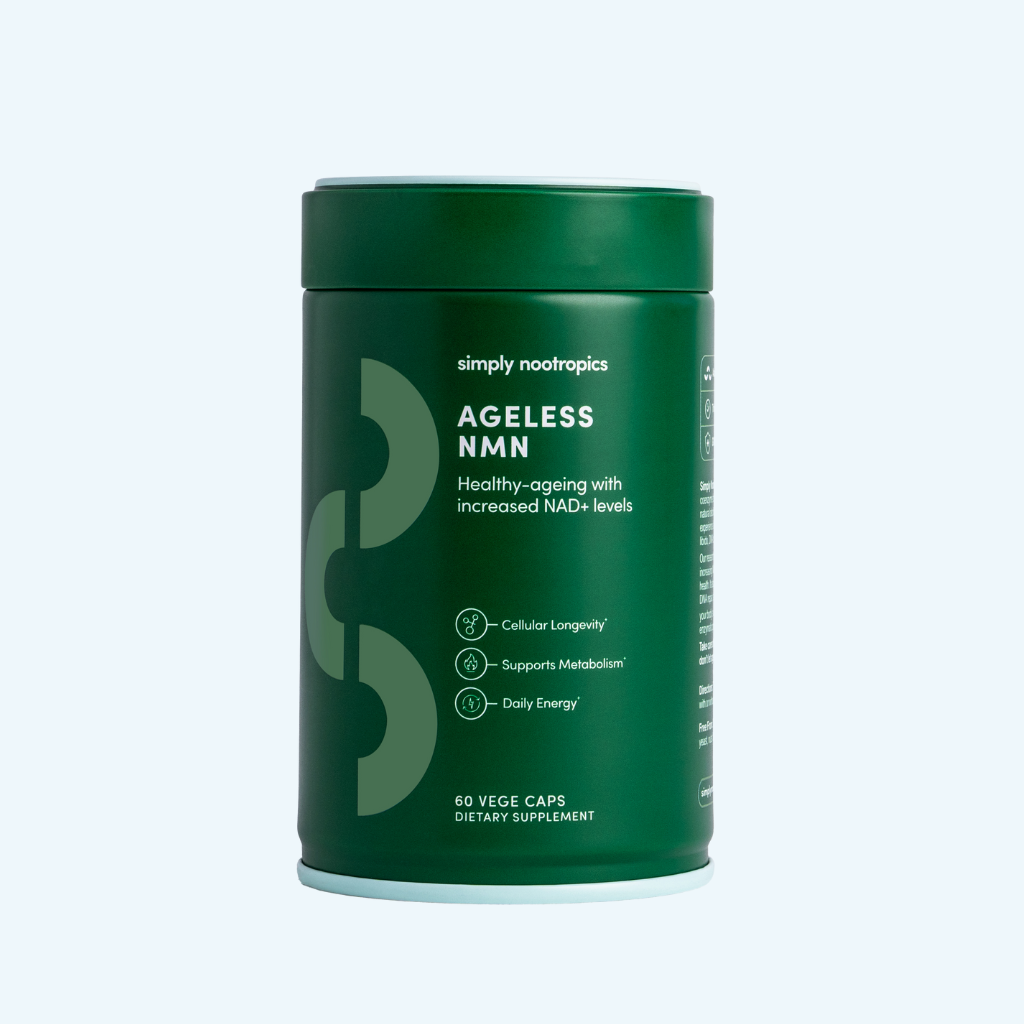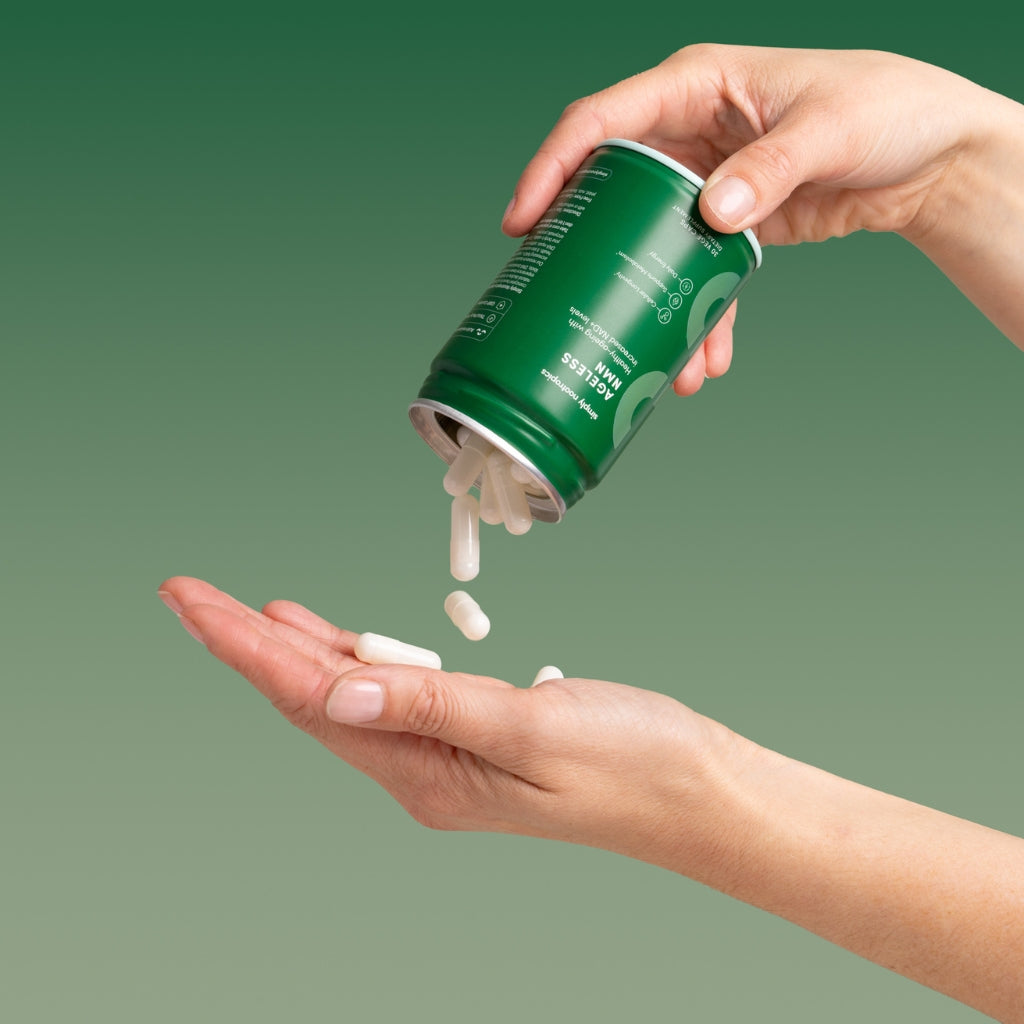When we think about skin health, we often start from the surface with moisturisers, serums, and sunscreen. But beauty, as it turns out, is built far deeper than the skin’s surface. The visible glow, firmness, and smoothness we associate with “good skin” are all reflections of what’s happening at a cellular level.
Modern research into skin biology and ageing has made one thing clear: skin is not separate from the rest of the body. It’s a living, regenerating organ made of cells that need energy, repair mechanisms, and protection, just like your brain, heart, or muscles. Supporting skin health, then, means supporting systemic health too.
So what does that look like in practice?
How Skin Ages (and Why It Matters)
From our mid-twenties onwards, collagen production begins to decline. The skin loses elasticity, hydration retention drops, and the rate of cellular turnover slows. These are visible signs of ageing, but they originate much deeper when we start considering beauty from the inside out.
Key contributors include:
-
Oxidative stress, which damages skin cells and collagen fibres
-
Chronic inflammation, which interferes with skin repair and pigment regulation
-
Mitochondrial decline, reducing the energy skin cells need to regenerate
-
A drop in NAD+ levels, a molecule vital for DNA repair and cell maintenance
These changes are often accelerated by lifestyle stress, poor sleep, processed food, and environmental exposure. This means that topical solutions, while helpful, can only go so far. The root causes live inside.
The Role of Mitochondria in Skin Health
Mitochondria are the powerhouses of your cells, and skin cells are no exception. Every process involved in regeneration, hydration, and collagen synthesis depends on energy. When mitochondrial function begins to falter (as it naturally does with age), cells take longer to repair themselves. Dead cells linger on the surface, making the skin look dull. Collagen and elastin production slows down, leading to sagging and fine lines.
Mitochondrial health isn’t just about energy, it’s about how well your skin can bounce back from stress, UV exposure, or injury. As interest in longevity grows, mitochondrial function has become a major research area not just for chronic illness or fatigue, but for ageing skin and beauty from the inside out as well.
NAD+: A Molecule Your Skin Depends On
Nicotinamide adenine dinucleotide (NAD+) is a molecule your body uses in almost every cell. It helps repair DNA, maintain mitochondrial function, and reduce oxidative damage. It’s especially important in the skin, where cells are exposed to light, pollutants, and other stressors daily.
The catch? NAD+ levels naturally decline with age, stress, and poor sleep. And when that happens, the skin's ability to regenerate declines too. This makes NAD+ a key area of interest for longevity researchers, and an emerging topic in skin health and beauty from the inside out.
There are a few well-studied ways to support NAD+ levels. NMN (nicotinamide mononucleotide) and NR (nicotinamide riboside) are both NAD+ precursors, molecules that the body converts into usable NAD+. Though they act on slightly different pathways, both have been shown to improve markers of cellular health, including in skin cells.
How Hormones Shape Skin at Every Stage
Hormonal changes also have a powerful influence on skin appearance and behaviour. Estrogen, for example, plays a key role in maintaining skin thickness, collagen content, and hydration. That’s one reason skin often becomes thinner, drier, or more fragile during menopause.
And it’s not just estrogen. Androgens (like testosterone) influence oil production, which can lead to breakouts in puberty or adulthood. Progesterone can increase skin sensitivity. Cortisol, our stress hormone, directly weakens collagen and impairs skin barrier repair when chronically elevated.
Understanding how these hormonal shifts affect skin can help explain why skin health feels inconsistent across the lifespan. It also highlights the importance of supporting the systems, like sleep, stress resilience, and metabolic function, that help regulate hormones in the first place and support beauty from the inside out.
Stress, Sleep, and the Skin Connection
Ever notice that your skin looks worse after a few nights of poor sleep or a high-stress week? That’s no coincidence.
Chronic stress increases cortisol levels, which can impair skin barrier function, slow wound healing, and degrade collagen. It also suppresses your immune system, which can lead to inflammation-related conditions like acne, eczema, or rosacea.
Sleep is when your skin does most of its repair work for beauty from the inside out. During deep sleep, growth hormone is released, which stimulates cell regeneration. Miss sleep regularly, and that repair window shrinks, leaving your skin more vulnerable to damage and slower to recover.
This makes sleep, stress management, and overall nervous system support essential parts of any long-term skin strategy, not just wellbeing.
Building Beauty from the Inside Out
So if radiant skin is the result of deeper systems functioning well, what does that mean in practical terms?
Here are some non-negotiables if you want to support your skin from within and beauty from the inside out:
-
Whole-body nourishment: Prioritise a protein-rich diet with healthy fats, colourful veg, and lots of water. Skin needs amino acids, vitamins, and minerals to rebuild.
-
Consistent sleep: Not just for beauty rest: sleep is when most skin regeneration happens.
-
Exercise (without overdoing it): Movement boosts circulation, which improves nutrient delivery and waste removal in skin.
-
Stress regulation: Daily rituals that calm your nervous system (like walks, deep breathing, or adaptogens) help protect your collagen from cortisol.
-
Mitochondrial + NAD+ support: As you age, your skin cells need more help recovering and regenerating. This is where cellular health support can make a difference over time.
Approaching skin health like this won’t deliver instant results, but it will build resilience. And when your body is well-supported, your skin reflects it: brighter tone, smoother texture, and a healthy kind of glow that no serum can fake.
What We’ve Formulated to Support This
If you’re already focusing on food, sleep, and stress care, you may want to complement your routine with internal support targeted at skin structure and repair.
Vital Beauty was created with this exact approach in mind. It combines collagen peptides, which provide the building blocks for elasticity and firmness, with nicotinamide riboside (NR) to help replenish declining NAD+ levels and support energy production within skin cells.
Together, these ingredients don’t just cover up the signs of ageing, they aim to support beauty from the inside out through the mechanisms that help your skin repair itself over time.
Vital Beauty won’t transform your skin overnight, but it will help it function more like it used to: energised, elastic, and more resilient from the inside out.


